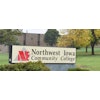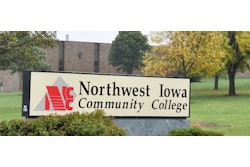In what is believed to be one of the largest federal investments in community colleges ever, the U.S. Department of Labor and the U.S. Education Department announced a long-awaited $2 billion competitive grant program Thursday meant to support programs that help students and “trade impacted” workers secure jobs in new and growing industries.
Titled the Trade Adjustment Assistance Community College and Career Training Grant Program, the four-year, $2 billion initiative was authorized through the American Recovery and Reinvestment Act of 2009’s amendments to the Trade Adjustment Assistance Act. Funding comes through the Health Care and Education Reconciliation Act, which is the Obama health care reform legislation that was signed into law last March.
The grant competition—part of the Obama administration’s larger goal of having America’s workforce hold the largest proportion of college degrees in the world by 2020—is open to community colleges but can involve partnerships with other institutions as well as the private sector. The grants are meant to enable institutions to “expand their capacity to create new education or training programs—or improve existing ones—to meet the needs of local regional businesses,” according to the Department of Labor.
“It means new opportunities for American workers to get in school to trained for in-demand jobs,” U.S. Secretary of Labor Hilda Solis said Thursday in a telephone conference, referring to jobs that ranged from those in the fields of allied health to renewable energy.
She said it will be up to the prospective community college grantees and their partners to determine precisely what professions will have the highest demand in the coming years.
“These institutions, in partnership with local employers and other entities, will create curriculums and programs leading to industry recognized credentials and associate degrees,” Solis said.
U.S. Secretary of Education Arne Duncan said the grant program will place a crucial focus on partnerships with business in order to achieve what Duncan often describes in his public speeches as the need to “educate our way to a better economy.”
“The idea of tying these schools with the private sector is so critically important,” Duncan said. “The private sector can’t do it without the schools and the schools can’t do it without the private sector.”
Through the grant program, every state, as well as the District of Columbia and Puerto Rico, will get at least $2.5 million each year in grant awards. The U.S. Departments of Labor and Education’s collaboration grew out of plans for both agencies to administer the American Graduation Initiative, a defeated Obama administration proposal that would have invested roughly $12 billion in community colleges over 10 years, with the goal of improving performance and getting more students to earn degrees and credentials.
The competitive grants announced Thursday are meant to fund the use of “evidence-based” learning materials, but the feds will also be looking for an emphasis on innovation.
“We want people to be as creative and thing outside the box as much as possible,” Secretary Duncan said.
“It’s a tremendous opportunity,” said James Hermes, director of Government Relations for the American Association of Community Colleges (AACC), of the Trade Adjustment Assistance Community College and Career Training Grant Program.
Hermes noted: “This will not just be money for a college to do what it’s already been doing the same way. There’s going to be some element of innovation in a successful grant application.”
Grantees can also expect a rigorous application process and a fair amount of monitoring and technical assistance to ensure the grants are being put to use the way the government intended.
“They will go over (grantees’ programs) with a fine-toothed comb and follow up and make sure that grantees follow up in a timely manner,” Secretary Solis said. “Because we are looking for partnerships with business and other entities, we’re going to want to have a lot of credible information provided in the grant solicitation itself, and follow up on how it’s moving along on a quarterly basis or what have you.”
While the program requirements may be strict in some regards, Hermes said they will be very liberal in other respects.
“I think you’ll see a lot of different things that are allowable use of funds, whether it be taking workers that lack basic skills and building new and better developmental education programs for them, in addition to what you normally conceive of in terms of training programs that are suited for their needs,” Hermes said. “At the end of the day, it’s going to be about things in this program that are going to work to get folks jobs. That is the end goal of all of this. But I think we’re going to see a broad view of the kinds of things that will lead to doing that.”
The federal government has set up an online tutorial for prospective grantees titled “Grant Applications 101: A Plain English Guide to ETA Competitive Grants.” It is available through the Workforce3One website at http://www.workforce3one.org/page/grants_toolkit.
The solicitation can be found at http://www.grants.gov. Or visit http://www.doleta.gov/grants by clicking on “Find Grants.”















